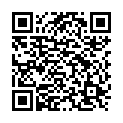|
|
|
| Module code: BBWL-2020-542 |
|
|
4V (4 hours per week) |
|
5 |
| Semester: 5 |
| Mandatory course: no |
Language of instruction:
German |
Assessment:
Oral test or written exam (120 min. / Can be repeated semesterly)
[updated 02.01.2019]
|
BBWL-542 (P420-0105) Business Administration, Bachelor, ASPO 01.10.2012
, optional course
BBWL-542/642 (P420-0105) Business Administration, Bachelor, ASPO 01.10.2016
, optional course
BBWL-2020-542 (P420-0105) Business Administration, Bachelor, ASPO 01.10.2020
, semester 5, optional course
|
60 class hours (= 45 clock hours) over a 15-week period.
The total student study time is 150 hours (equivalent to 5 ECTS credits).
There are therefore 105 hours available for class preparation and follow-up work and exam preparation.
|
Recommended prerequisites (modules):
BBWL-2020-150 Marketing
[updated 19.12.2019]
|
Recommended as prerequisite for:
BBWL-2020-643
BBWL-2020-644 Specialization (SP) Module 4: International Marketing and Market Research
BBWL-2020-645
[updated 22.02.2020]
|
Module coordinator:
Prof. Dr. Tatjana König |
Lecturer:
Prof. Dr. Frank Hälsig (lecture)
Prof. Dr. Tatjana König (lecture)
[updated 10.12.2019]
|
Learning outcomes:
After successfully completing this module, students will:
- be familiar with the characteristics of individual marketing tools
- be able to explain the difficulties of consistently coordinating between tools
- be able to identify the decision-making fields of the marketing tools and relate them to one another
- be able to apply the various design options to problems in a company after analyzing the respective situation.
1.
[updated 02.01.2019]
|
Module content:
Product policy (new product design and market launch, phase-related
product management, product elimination, brand basics)
2. Pricing policy (price sales functions and elasticities, cost-oriented,
competitive and customer-oriented pricing strategies, as well as
price perception and structuring pricing and conditions)
3. Communication policy (design possibilities in the field of advertising,
sponsoring, public relations and sales promotion)
4. Sales policy: Sales organization and structures (sales areas, online
sales, internal sales organization, key account management, global account
management), sales forms, lead management, support concepts)
[updated 02.01.2019]
|
Teaching methods/Media:
Lecture with case studies and exercises
[updated 02.01.2019]
|
Recommended or required reading:
- Ahlert, D., Hesse, J., Jullens, J., Smend, P. (Hrsg.), Multikanalstrategien:
Konzepte, Methoden, Erfahrungen, Wiesbaden 2003.
- Albers, S. (Hrsg.), Handbuch Produktpolitik, latest edition, Wiesbaden.
- Becker, J. (latest edition), Marketing-Konzeptionen: Grundlagen des
zielstrategischen und operativen Marketing-Managements, München.
- Bruhn, M. (2010), Kommunikationspolitik: Systematischer Einsatz der
Kommunikation für Unternehmen, 6. Auflage, München.
- Diller, H. (latest edition), Preispolitik, Stuttgart.
- Diller, H., Herrmann, A. (Hrsg.), Handbuch Produktpolitik, latest edition,
Wiesbaden.
- Esch, F.-R. (latest edition), Strategie und Technik der Markenführung,
München.
- Koppelmann, U. (latest edition), Produktmarketing, Hamburg.
- Meffert, H., Burmann, C., Kirchgeorg, M. (latest edition): Marketing:
Grundlagen marktorientierter Unternehmensführung _ Konzepte, Instrumente,
Praxisbeispiele, Wiesbaden.
- Pepels, W. (2004), Marketing, 4. Auflage, München.
- Simon, H., Fassnacht, M. (2009), Preismanagement, 3. Auflage, Wiesbaden.
- Winkelmann, P. (latest edition), Marketing und Vertrieb, München.
[updated 02.01.2019]
|

